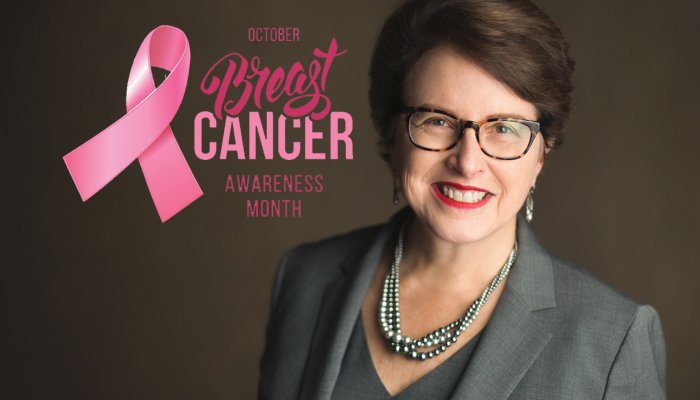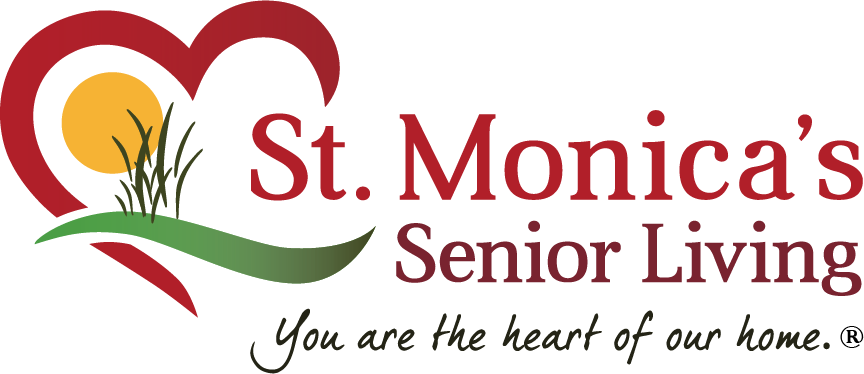Breast Cancer Awareness Month

By Loretta Baxter
As a breast cancer survivor (6 years) I’m passionate about educating all women and men (yes men can get breast cancer too) about the factors that can increase your risk of breast cancer and what you can do to reduce your risk. I was fortunate in that my breast cancer was picked up early (Stage I) on a routine mammogram.
On October 9th, St. Monica’s will hold a breast cancer awareness day. Everyone is encouraged to wear pink. Pink ribbons will be distributed to all those who would like to wear one.
Doctors know that breast cancer occurs when some breast cells begin to grow abnormally. These cells divide more rapidly than healthy cells do and continue to accumulate, forming a lump or mass. Cells may spread (metastasize) through your breast to your lymph nodes or to other parts of your body.
Researchers have identified hormonal, lifestyle, and environmental factors that may increase your risk or breast cancer. But it is not clear why some people who have no risk factors never get cancer. It is likely that breast cancer is caused by a complex interaction of your genetic make up and your environment. Doctors estimate that about 5 – 10% of breast cancers are linked to gene mutations passed through generations of a family.
Risk Factors
A breast cancer risk factor is anything that makes it more likely you will get breast cancer. But having one or even several breast cancer risk factors does not mean you will necessarily develop breast cancer. Many women who develop breast cancer have no known risk factors other than simply being a woman. Factors that are associated with increased risk of breast cancer include:
- Being a female
- Increasing age-your risk of breast cancer increases as you age
- A personal history of breast conditions
- A personal history of breast cancer in one breast-you have an increased risk of developing cancer in the other breast
- A family history of breast cancer
- Inherited genes that increase cancer risk
- Radiation exposure
- Obesity
- Beginning your period at a younger age-less than 12 years
- Beginning menopause at an older age
- Having your first child at an older age
- Having never been pregnant
- Receiving post- menopausal hormone therapy-Women that take hormone therapy medications that combine estrogen and progesterone to treat the signs and symptoms of menopause have an increased risk of breast cancer. The risk of breast cancer decreases when women stop taking these medications
- Drinking alcohol-drinking alcohol increases the risk of breast cancer
Prevention ideas from the Mayo Clinic www.mayoclinic.org
- Ask your doctor about breast cancer screening. Discuss with your doctor when to begin breast cancer screening exams and tests, such as clinical breast exams and mammograms.
- Become familiar with your breasts through breast self-exam for breast awareness. Women may choose to become familiar with their breasts by occasionally inspecting their breasts during a breast self-exam for breast awareness. If there is a new change, lumps, or other unusual signs in your breasts, talk to your doctor promptly.
- Drink alcohol in moderation, if at all. Limit the amount of alcohol you drink to no more than one drink a day if you choose to drink.
- Exercise most days of the week. Aim for at least 30 minutes of exercise on most days of the week. If you have not been active lately, ask your doctor whether it's OK and start slowly.
- Limit postmenopausal hormone therapy. Combination hormone therapy may increase the risk of breast cancer. Talk with your doctor about the benefits and risks of hormone therapy.
- Maintain a healthy weight. If your weight is healthy, work to maintain that weight. If you need to lose weight, ask your doctor about healthy strategies to accomplish this. Reduce the number of calories you eat each day and slowly increase the amount of exercise.
- Choose a healthy diet. Women who eat a Mediterranean diet supplemented with extra-virgin olive oil and mixed nuts may have a reduced risk of breast cancer. The Mediterranean diet focuses mostly on plant-based foods, such as fruits and vegetables, whole grains, legumes, and nuts. People who follow the Mediterranean diet choose healthy fats, such as olive oil, over butter and fish instead of red meat
Encourage a friend to get a mammogram. You might just save a life.



